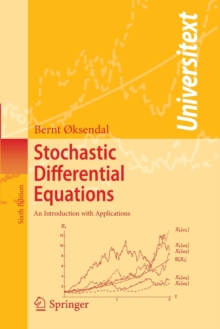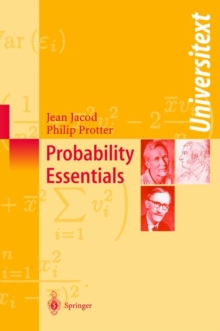
Description
The aim of this book is to present hyperbolic partial di?erential equations at an elementary level.
In fact, the required mathematical background is only a third year university course on di?erential calculus for functions of several variables.
No functional analysis knowledge is needed, nor any distribution theory (with the exception of shock waves mentioned below). k All solutions appearing in the text are piecewise classical C solutions.
Beyond the simpli?cations it allows, there are several reasons for this choice: First, we believe that all main features of hyperbolic partial d- ferential equations (PDE) (well-posedness of the Cauchy problem, ?nite speed of propagation, domains of determination, energy inequalities, etc. ) canbedisplayedinthiscontext. Wehopethatthisbookitselfwillproveour belief. Second,allproperties,solutionformulas,andinequalitiesestablished here in the context of smooth functions can be readily extended to more general situations (solutions in Sobolev spaces or temperate distributions, etc. ) by simple standard procedures of functional analysis or distribution theory, which are "external" to the theory of hyperbolic equations: The deep mathematical content of the theorems is already to be found in the statements and proofs of this book.
The last reason is this: We do hope that many readers of this book will eventually do research in the ?eld that seems to us the natural continuation of the subject: nonlinear hyp- bolic systems (compressible ?uids, general relativity theory, etc. ).
Information
-
Download - Immediately Available
- Format:PDF
- Publisher:Springer New York
- Publication Date:17/06/2009
- Category:
- ISBN:9780387878232
Other Formats
- Paperback / softback from £40.15
Information
-
Download - Immediately Available
- Format:PDF
- Publisher:Springer New York
- Publication Date:17/06/2009
- Category:
- ISBN:9780387878232










